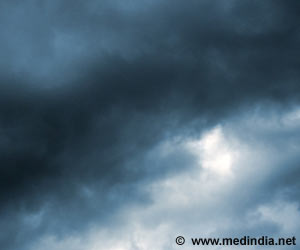As the situation of US homeowners ruined by the Chinese drywall is turning precarious, a senator is calling for state of emergency in Florida so as to enable flow of federal financial aid to them.
As the situation of US homeowners ruined by the Chinese drywall is turning precarious, a senator is calling for state of emergency in Florida. That could facilitate flow of federal financial aid to the affected people.
Over a 100,000 homes, a majority so far in Florida, are feared to have been affected.Laboratory tests carried out for Florida's Department of Health showed that samples of the Chinese-made drywall contained strontium sulfide, which gives a rotten egg odor when moistened and reacts with hydrogen in the air to take on corrosive powers capable of eating through metals and electrical wires.
"This is a noxious, pungent chemical compound. If it can corrode metals in your house, I hate to think what it's doing to residents and their children and pets," said Jordan Chaikin of Florida legal firm Parker Waichman Alonso, which has launched a federal class-action lawsuit against Knauf Tianjin in the US District Court in Fort Myers.
Rene Galvin’s $500,000 dream condo in Bonita Springs, Florida has turned into a nightmare. Mirrors that corroded around the edges, drains that rusted on the baths, pitted faucets, the television, computer, dishwasher, coffee pot, telephones, and air-conditioning system that all inexplicably broke down, it was a frightening experience. Even the treasured gold-dipped necklace she wore around her neck turned black. There are such innumerable heart-breaking stories in the region.
"This is an acute and growing crisis," US Rep. Robert Wexler (D) urged the state's governor, Charlie Crist, in a letter, noting serious health and safety implications. "This is a significant statewide problem whose devastating impact on families and our state is similar to a natural disaster such as a hurricane, fire or flood."
Over 500 million pounds of drywall were imported from China between 2004 and 2007 when the construction boom was at a peak and domestic materials in short supply, with demand exacerbated by the reconstruction programs that followed hurricanes Katrina and Wilma.
Advertisement
Knauf Tianjin – the main Chinese manufacturer so far singled out for blame – says it was responsible for only around 20 per cent of that supply, and the firm complains that because it was the only company that stamped its name on its product that it is being unfairly targeted.
Advertisement
Lennar Homes is the subject of some lawsuits. But, in turn, it has launched a suit itself against Knauf and another Chinese drywall manufacturer, Taishan Gypsum. It is also suing independent US contractors for installing the defective product in Lennar homes.
"They have refused to take responsibility for their defective product, leaving us no other option but to seek redress in a court of law," the company asserted in a written statement.
"The builders are victims too," says Howard Ehrsam, a civil engineer who founded Chinese Drywall Screening, of Port St Lucie, Florida, to meet growing demand from homeowners for diagnosis and advice.
Insurance companies "don't know what to do," he says, since contaminated drywall counts neither as a covered peril nor as an exclusion. "Meanwhile you've got the manufacturer, the supplier, the builder, the installer ... a whole chain of custody, so for an attorney it's a case of 'Woo-hoo, we've got all these layers we can sue.'"
He adds: "I've never seen a crisis in the construction industry to this degree ... this is widespread and far-reaching."
For many affected by the contamination scandal, or striving to bring resolution, there is anger and frustration that this is just the latest in a series of health and safety scares relating to imported Chinese goods. Toxic baby toys, tainted animal feed and toothpaste, hazardous high-chairs, and infant formula contaminated with melamine have all been the focus of product recalls or warnings over the past 18 months.
"We need stronger and better quality control coming out of China," says attorney Ervin Gonzalez of Miami, who is suing Knauf on behalf of 150 drywall victims. "And if China isn't doing it, the countries buying from them need to do a better job themselves."
Amid questions as to why it has not done a better job of screening imports for dangerous defects, the US Consumer Product Safety Commission, a federal body charged with protecting the public from such risks, is now mounting an investigation into the drywall issue. It has dispatched toxicologists, electrical engineers, and compliance staff to Florida to speak with victims and take samples from their homes, Jacqui Goddard reported for Christian Science Monitor.
"We are working towards initiating a testing program and liaising very closely with federal parties and state departments of health," says spokesman Scott Wolfson. "We are following the facts."
In recent months, the commission has also started posting staff at US ports to work alongside customs officials in scrutinizing imports more closely. "Now we have the ability to focus on looking at where these products come in, and what can we be doing better to look at their quality and safety," says Mr Wolfson.
Source-Medindia
GPL/L













